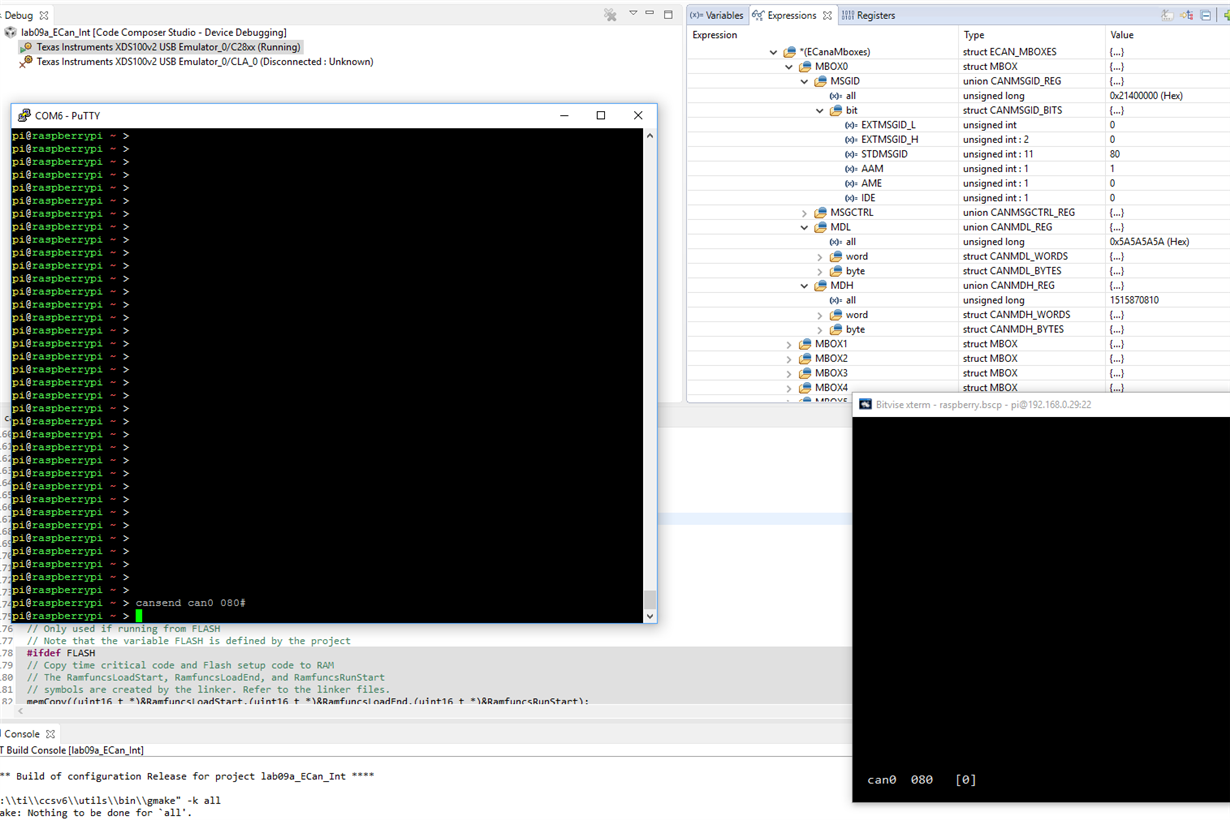Other Parts Discussed in Thread: CONTROLSUITE, MOTORWARE
Hi,
I would like to set the speed and Iq value via CANbus or any other serial comms.
Also, receive information such as bus voltage, current and motor speed.
How can I do this? Where should I start from?
Many thanks. Regards
Noble.


